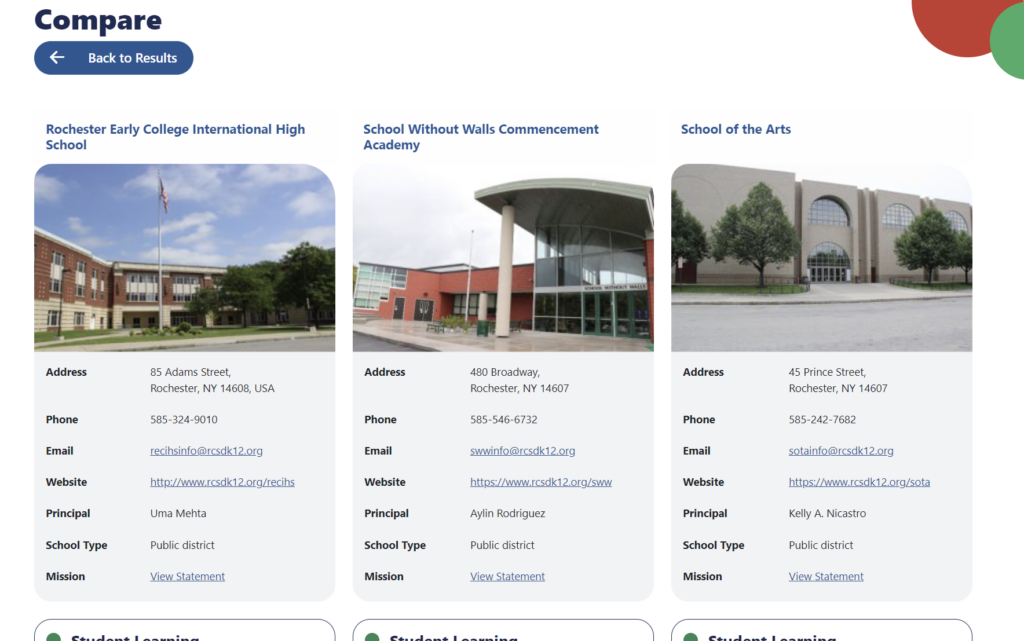Available Special Education Services
What types of services are available?
Restrictive-Supportive-Self Contained Class: A Special Day Class (SDC) which is quite small with no more than 8-10 students based on the age in which the students are in that classroom all day with a credentialed special education teacher and usually there are paraprofessionals also in that class.
Resource (RSP): Classes that a student will need some extra help in subject matter and they will attend that class a certain number of minutes and days per week.
Special Day (SDC): Classes that do not require the student to be self-contained all day but a certain number of minutes and days per week.
Push In: Classes that the student is in a general education class with added support for a certain number of minutes and days per week.
Push Out: Classes where the student is pulled out for the added support for a certain number of minutes and days per week.
Small group: Service given in a small group for the students to have interaction with each other.
Designated instructional services (DIS) are usually pull-out individual and small group services.
Supplementary services on an IEP are to help the student with:
- Use of large print
- Use of calculator
- More time for testing
- Read instructions out loud
- Consult time with teacher
- Needs to sit in the front of the room
What are 504 plans?
This is a more formal plan that schools administer to children. Unlike IEP’s, these plans are not part of special education. The goal is the same, to remove any barrier preventing your child from learning. These accommodations don’t necessarily change what your child will learn, but how they will learn it.
Accommodations can include but are not limited to:
- Changes to the environment (like taking tests in a quiet space)
- Changes to instruction (like checking in frequently on key concepts)
- Changes to how curriculum is presented (like getting outlines of lessons)

What is an IEP?
Students who receive special education programs and services have an educational plan called an individualized education program (IEP). IEP’s are included in the PreK-12 public education system. This will be the blueprint for how your child will receive instruction, support, and additional services.
IEP’s are covered by the special education law, or the Individuals with Disabilities Education Act (IDEA). This law is in place to ensure all students in traditional public and public charter with disabilities receive support.
What is it supposed to ensure?
- Access to general education programs
- Accommodations, adaptations, specialized services, and supports to support your child’s learning progress
- Legal protections to track outcomes and most importantly allow families to be apart of the decision making
What should I bring to my upcoming IEP hearing?
Everyone who is part of this process should be clear on the goals for the meeting. Remember you are here because this process calls for collaboration between the family and school. Healthy collaboration should consist of collaborative communication, respect, and ensuring your child receives a quality education.
Below are items that are helpful to bring:
- Notepad and pen to take notes
- If you’re able to record, have an audio recorder or recording app on your phone
- Official documents like your child’s current IEP, recent progress reports, and report cards which many would call an IEP Binder
- Samples of your child’s homework and tests
- Any relevant communications from your child’s teacher/school (We recommend you develop a communication log)
- Any private evaluation reports
- Bring a friend or local special education advocate to be an extra support system
- Be sure to let the IEP team know you have an additional guest coming for support and provide their name and relationship to your family
Here are some questions to keep in mind!
First and foremost, don’t be afraid to ask for clarification, paraphrasing and/or to restate a question during your meeting. Be sure to check out our resources page that will give you access to both state and local special education agencies that can support you as well.
Below are some questions you should keep in mind when attending.
- What assessments were used to determine plan?
- What staff has worked together to determine my child’s special education service?
- Who will be administering progress monitoring?
- How often will my child be progress monitored?
- What accommodations have been tried and unsuccessful?
- How will this program address my child’s needs?
- What skills is my child lacking and how can I develop these skills at home?
- What curriculum modifications does my child need and how will that be determined?
- Who will my child work with for services and what is the goal (when and how often)?
- How will a positive relationship be established with my child when assigned to a related service provider?
- How will I get the most up to date reports on my child’s IEP (Daily, weekly, or monthly)?
- What are specific amounts of time my child will spend in general education vs special education?
Remember to
- Ask questions that focus on the problem and that will identify the solutions
- Ask questions to better understand staff recommendations
Provided by the National Parents Union.

